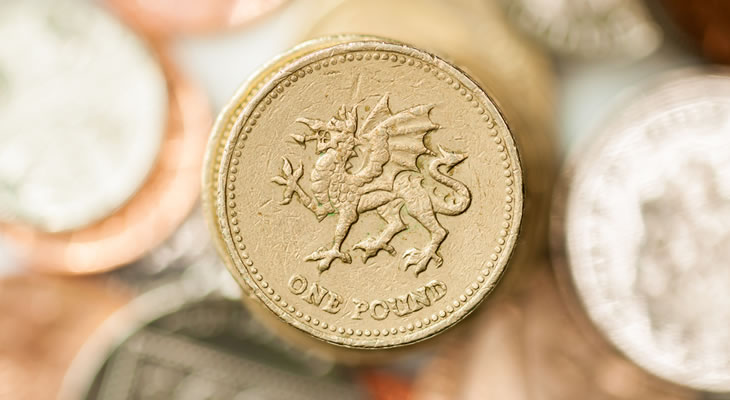Gains Forecast for GBP/JPY Exchange Rate if May Brings Interest Rate Hike from Bank of England
With only a month to go until the next Bank of England (BoE) monetary policy meeting expectations of an interest rate hike in May are helping support the GBP/JPY exchange rate.
Despite having risen by three-and-a-half Yen over the course of the past four weeks, Pound Sterling has had a turbulent ride, as weak data weighed on GBP and global trade war fears boosted JPY demand.
A series of disappointing UK Markit PMI results, including a surprise contraction in the construction sector and a larger-than-expected slowdown in the services index, have given rise to expectations that growth will have weakened during the first quarter.
However, yesterday’s house price growth data from Halifax significantly outperformed expectations, revealing a 1.5% rise in property values on the month in March, compared to predictions for just 0.1%.
With the vulnerable property market considered a bellwether for the rest of the economy in terms of the impact of Brexit-related shocks, the stronger-than-expected rebound in the property market has indicated that the economy may be on solid enough ground to withstand the impact of another interest rate hike.
Markets have priced in strong odds that the Monetary Policy Committee (MPC) will vote at the next meeting on 10th May to raise borrowing costs to 0.75% – the highest interest rates have been since March 2009.
Trade War Fears could continue to Weigh on GBP/JPY Exchange Rate Unless Trump Targets Japan
US President Donald Trump’s focus on changing what he claims are the unfair trade practices of many of America’s key trading partners has supported the Japanese Yen over the past few weeks, although the GBP/JPY exchange rate has still be able to gain overall.
Trump’s protectionist rhetoric and the tit-for-tat exchanges between the US and China, which have seen tariffs levied on billions of Dollars’ worth of imports on both sides of the Pacific, has seen markets flee to safe-haven assets such as the Japanese Yen, only to be lured out again a day or two later by more conciliatory remarks.
With markets remaining unsure over the likelihood that the situation will devolve into a full-blown trade war, the Japanese Yen has lacked consistent support from safe-haven demand, allowing Pound Sterling to gradually climb higher.
Safe-haven demand may not benefit the Japanese Yen to the same extent if Trump turns his attentions to Japan, which he has already criticised for its significant trade surplus with the US.
In March Trump tweeted;
‘Spoke to Prime Minister Abe of Japan, who is very enthusiastic about talks with North Korea. Also discussing opening up Japan to much better trade with the U.S. Currently have a massive $100 Billion Trade Deficit. Not fair or sustainable. It will all work out!’
It appears that the US trade deficit was overstated and did not take into account exports and imports of services, in which the US had a US$14 billion surplus during 2016, however.
Should Trump decide to target Japan in the same way he has China, investors may prefer other safe-havens, such as the US Dollar or Swiss Franc, to the Yen, pushing the GBP/JPY exchange rate even higher.


Comments are closed.